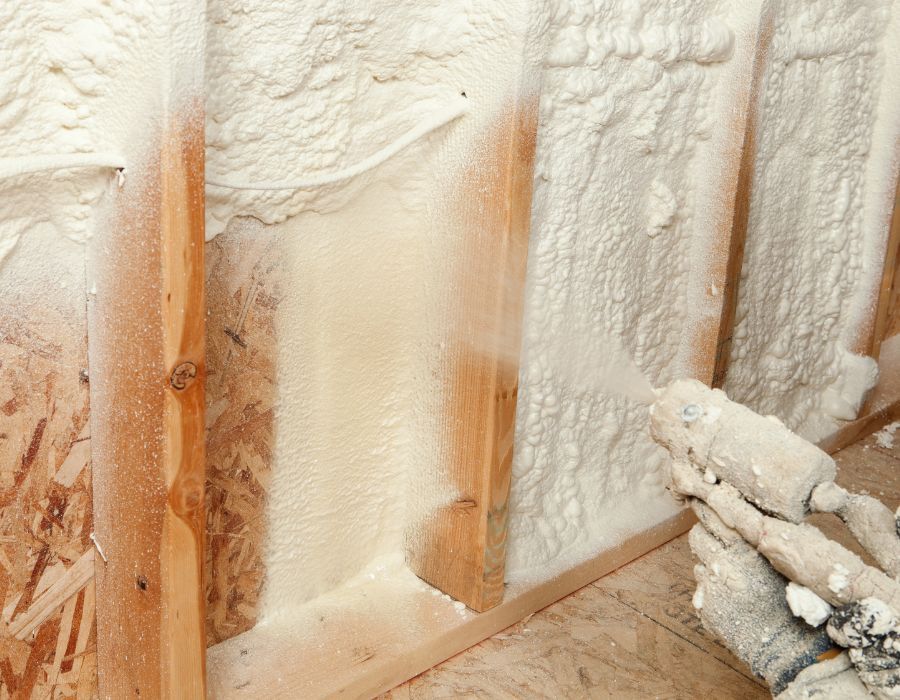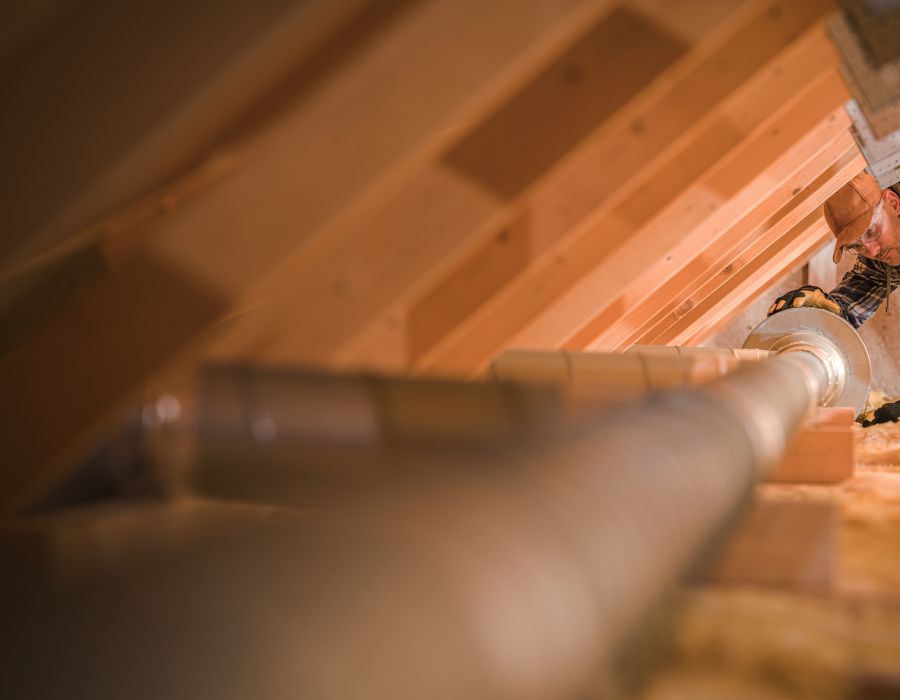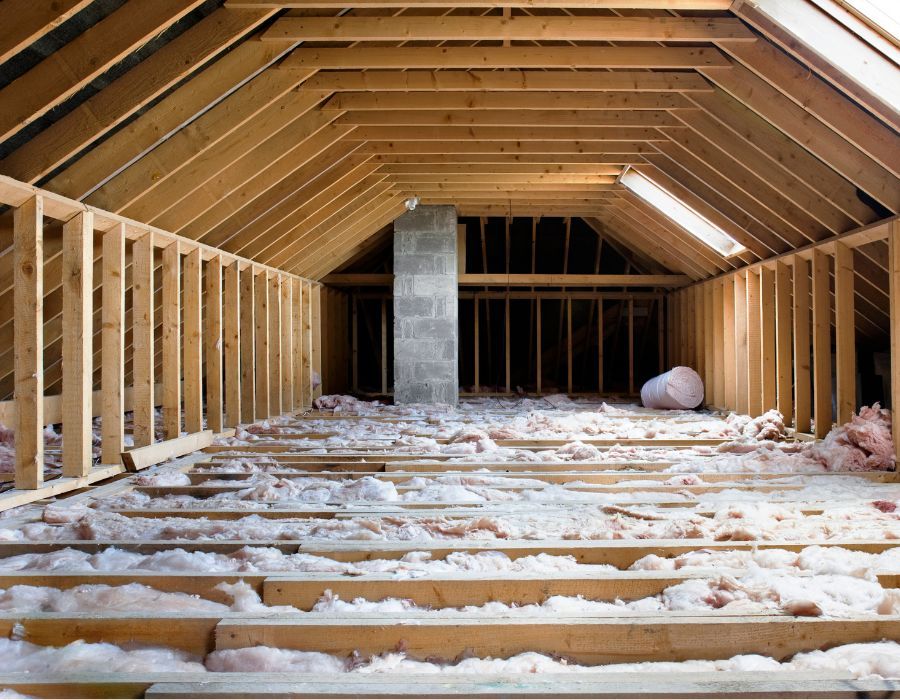
The Benefits of Spray Foam Insulation: Improving Energy Efficiency and Comfort
TL;DR: Spray foam insulation offers superior energy efficiency and comfort by creating an airtight seal that traditional insulation methods can’t match. Although it has a higher initial cost, it provides long-term savings through reduced energy bills, extended HVAC system life, moisture resistance, and increased home value. Investing in spray foam insulation ensures a more comfortable and energy-efficient home, making it a worthwhile investment.
When it comes to enhancing your home’s energy efficiency and comfort, insulation plays a pivotal role. Among the various insulation options available, spray foam insulation stands out for its superior performance and numerous benefits. This blog will explore what spray foam insulation is, its long-term cost savings, and how it compares to traditional insulation methods. By the end, you’ll understand why spray foam insulation is a smart investment for your home.
Table of Contents
ToggleWhat is Spray Foam Insulation?
Spray foam insulation is a versatile and effective insulating material that is applied as a liquid and then expands into a foam. This expansion allows it to fill gaps, cracks, and hard-to-reach areas, creating a tight seal that traditional insulation materials often can’t achieve. There are two main types of spray foam insulation: open-cell and closed-cell.
- Open-Cell Spray Foam: This type is less dense and more flexible, making it ideal for interior applications where sound absorption is beneficial.
- Closed-Cell Spray Foam: Denser and more rigid, closed-cell spray foam provides a higher R-value, making it suitable for exterior applications and areas requiring moisture resistance.
The ability of spray foam to expand and conform to surfaces ensures an airtight barrier, enhancing thermal resistance and reducing air leakage.
Long-Term Cost Savings
One of the most compelling benefits of spray foam insulation is its potential for long-term cost savings. Although the initial installation cost can be higher than traditional insulation materials, the return on investment is significant due to the following factors:
- Energy Efficiency: Spray foam insulation significantly reduces energy consumption by minimizing heat loss in the winter and heat gain in the summer. This results in lower utility bills year-round.
- HVAC System Relief: With better insulation, your heating and cooling systems don’t have to work as hard to maintain a comfortable indoor temperature. This can extend the lifespan of your HVAC equipment and reduce maintenance costs.
- Moisture Barrier: Closed-cell spray foam acts as a barrier against moisture, preventing mold growth and structural damage. This can save you from costly repairs and health-related expenses down the line.
- Increased Home Value: Homes with spray foam insulation are often more attractive to buyers due to their energy efficiency and comfort, potentially increasing your property’s resale value.
Spray Foam vs. Traditional Insulation Methods
Understanding the differences between spray foam and traditional insulation methods can help you make an informed decision for your home:
- Fiberglass Insulation: Typically installed in batts or rolls, fiberglass is a common insulation material. However, it can leave gaps and isn’t as effective at sealing air leaks compared to spray foam.
- Cellulose Insulation: Made from recycled paper, cellulose is eco-friendly but can settle over time, reducing its effectiveness. It also doesn’t provide the same air sealing properties as spray foam.
- Rigid Foam Boards: These offer good insulation but can be challenging to install in irregular spaces. They also don’t seal gaps and cracks as effectively as spray foam.
Spray foam’s ability to create a continuous air barrier and its superior insulating properties give it a significant edge over traditional methods. It conforms to any space, ensuring comprehensive coverage and performance.
Final Thoughts
Investing in spray foam insulation is a strategic move to enhance your home’s energy efficiency, comfort, and value. Its unique properties, including superior air sealing and moisture resistance, make it a standout choice compared to traditional insulation methods. While the upfront cost may be higher, the long-term savings and benefits justify the investment.
Whether you’re building a new home or upgrading an existing one, consider spray foam insulation to ensure a comfortable, energy-efficient living environment. By making this smart choice, you’ll not only improve your home’s performance but also contribute to a more sustainable future.
FAQ
What is the difference between open-cell and closed-cell spray foam insulation?
Open-cell spray foam is less dense and more flexible, making it ideal for interior applications where sound absorption is beneficial. Closed-cell spray foam is denser and more rigid, providing a higher R-value and making it suitable for exterior applications and areas requiring moisture resistance.
How much does spray foam insulation cost compared to traditional insulation methods?
Spray foam insulation generally has a higher upfront cost compared to traditional insulation methods like fiberglass or cellulose. However, the long-term savings on energy bills, HVAC system maintenance, and potential repairs often make it a cost-effective investment over time.
Can spray foam insulation help reduce my energy bills?
Yes, spray foam insulation can significantly reduce your energy bills by minimizing heat loss in the winter and heat gain in the summer. Its ability to create an airtight seal prevents air leaks, ensuring your heating and cooling systems work more efficiently.
Is spray foam insulation safe for my home?
When properly installed by professionals, spray foam insulation is safe for your home. It helps improve indoor air quality by reducing drafts and moisture infiltration. However, it’s important to ensure that the installation is done correctly to avoid issues such as improper curing or off-gassing.
Other Blogs You May Be Interested In
Categories
- Spray Foam Insulation
- Attic Ventilation
- Attic Insulation
- Radiant Barrier
- Blown-In Insulation
- Solar Fan









Leave a Reply